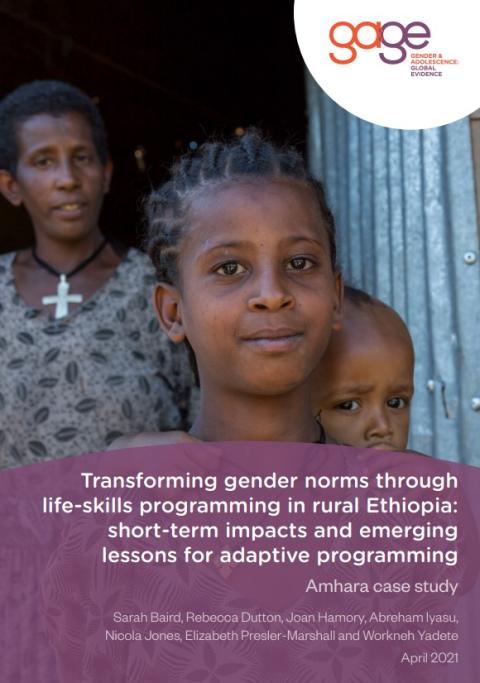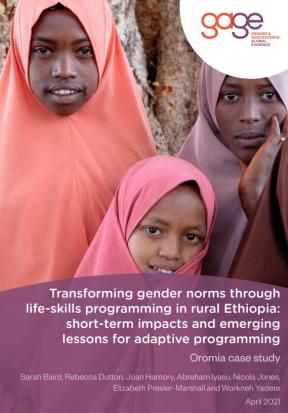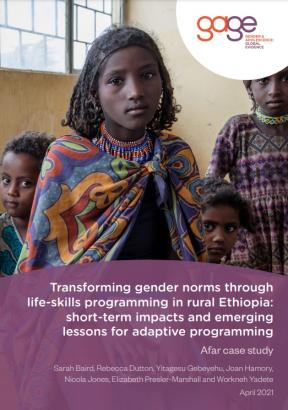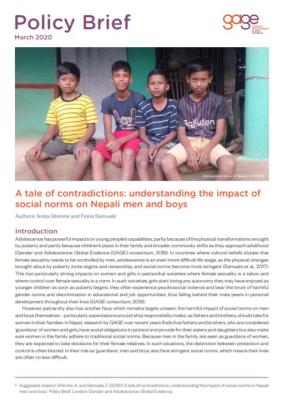- Report
- 12 Abril 2021
Transforming gender norms through life-skills programming in rural Ethiopia: short-term impacts and emerging lessons for adaptive programming (Amhara case study)
- Author: Sarah Baird, Rebecca Dutton, Joan Hamory, Abreham Iyasu, Nicola Jones, Elizabeth Presler-Marshall, Workneh Yadete
- Published by: GAGE

Life-skills programming that takes a gender-responsive approach is well-positioned to both build adolescents’ skills and to empower them more broadly. Reviews of the impacts of club-based life-skills interventions in low- and middle-income countries (LMICs) find that they improve adolescents’ educational, mental health and psychosocial outcomes, but also highlight important evidence gaps, particularly for interventions targeting very young adolescents (VYA; aged 10–14 years).
The implementation and evaluation of Act With Her-Ethiopia (AWH-E) programming, targeting three diverse populations in Ethiopia, provides a critical opportunity to fill this evidence gap and contribute to understanding of ‘what works’ to influence adolescents’ trajectories. AWH-E is a safe spaces curriculum-based group programme for girls aged 11–13, with additional programming for boys and adolescents’ support systems (including parents, community leaders and other community members) and system-strengthening initiatives.
The Gender and Adolescence: Global Evidence (GAGE) programme is carrying out a longitudinal cluster randomised evaluation of the AWH-E programme in three regions of Ethiopia: Afar, Amhara and Oromia . This report is one of a series of three regional reports. It focuses on survey and qualitative research findings from South Gondar in Ethiopia’s Amhara region, and concludes with recommendations for future programming.
- Tags:
- Data, tools and measurement, Adolescence, Sexual and reproductive health, Gender-based violence, Men, boys and masculinities
- Countries / Regions:
- Ethiopia
Report
20 Abril 2021

Report
1 Abril 2021

Briefing paper
1 Marzo 2020
